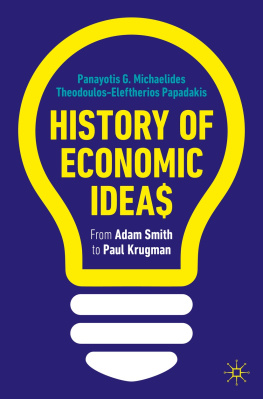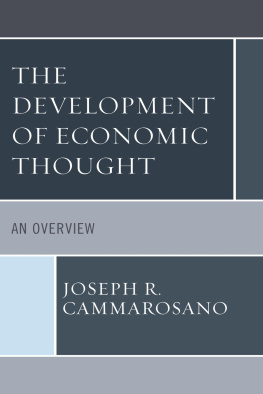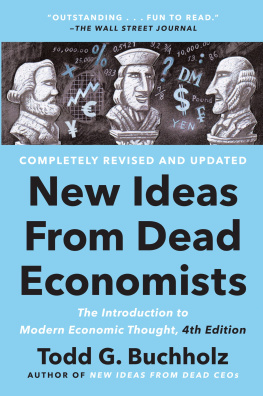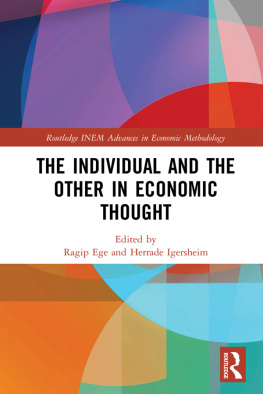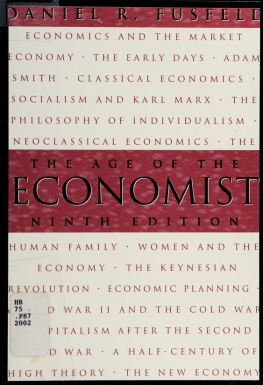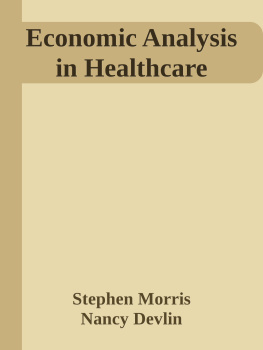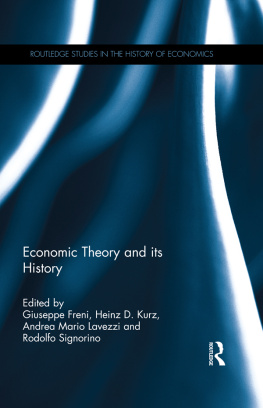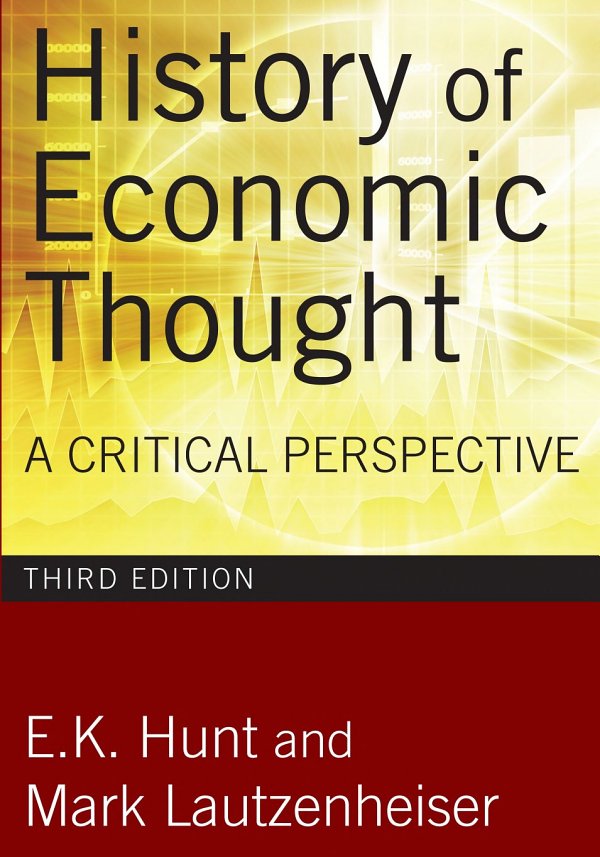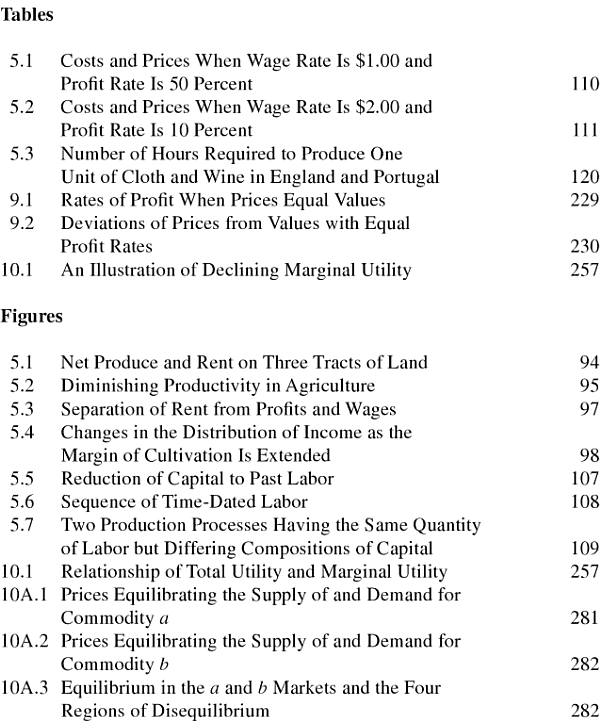List of Tables and Figures
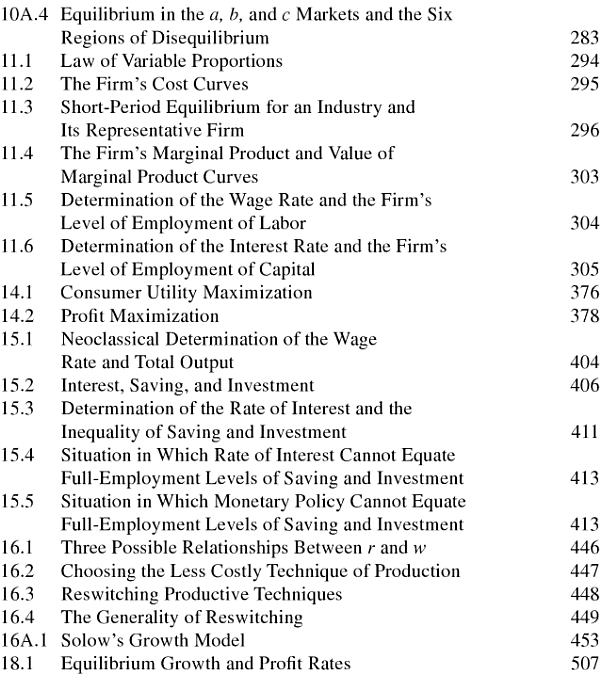
Foreword to the Third Edition
It is an honor to write the foreword for this new edition of History of Economic Thought: A Critical Perspective. On rare occasions we read something that grabs us by the shoulders, shakes us, and changes the way we see the world around us. Early in my career as a young economist, an article by someone I only came to know personally years later forever changed the way I think about markets. In hopes that a passage E.K. Hunt wrote which changed my world view may affect others in the same way, I quote from the passage at length.
The Achilles heel of welfare economics is its treatment of externalities.... In a market economy any action of one individual or enterprise which induces pleasure or pain to any other individual or enterprise and is under or over priced by a market constitutes an externality. Since the vast majority of productive and consumptive acts are social, i.e., to some degree they involve more than one person, it follows that they will involve externalities.... . If we assume the maximizing economic man of bourgeois economics, and if we assume the government establishes property rights and markets for these rights whenever an external diseconomy is discovered [the preferred solution of the conservative and increasingly dominant trend within the field of public finance], then each man will soon discover that through contrivance he can impose external diseconomies on other men, knowing that the bargaining within the new market that will be established will surely make him better off. The more significant the social cost imposed upon his neighbor, the greater will be his reward in the bargaining process. It follows from the orthodox assumption of maximizing man that each man will create a maximum of social costs which he can impose on others. Ralph dArge and I have labeled this process the invisible foot of the laissez faire... market place. The invisible foot ensures us that in a free-market... economy each person pursuing only his own good will automatically, and most efficiently, do his part in maximizing the general public misery.... To paraphrase a well-known precursor of this theory: Every individual necessarily labors to render the annual external costs of the society as great as he can. He generally, indeed, neither intends to promote the public misery nor knows how much he is promoting it. He intends only his own gain, and he is in this, as in many other cases, led by an invisible foot to promote an end which was no part of his intention. Nor is it any better for society that it was no part of it. By pursuing his own interest he frequently promotes social misery more effectually than when he really intends to promote it.1
Unlike many students today, my graduate education had already taught me how disequilibrating forces can cause markets to generate inefficient out comes, and why labor and capital markets fail to distribute income equitably. Moreover, I already favored finding ways for people to cooperate with one another equitably rather than succumb to the economics of competition and greed that markets force us to engage in. But Hunts point was that even if we ignored distributive issues, even if markets miraculously found their new equilibria instantaneously, even if monopolistic elements did not intrude; in other words, even under the best possible circumstances, if externalities are ubiquitous, markets cannot be relied upon to do the one thing their advocates assure us they do wellallocate resources efficiently. If externalities are the rule rather than the exception, markets will systematically misallocate too many resources to the production of goods whose consumption or production entails negative external effects, and too few resources to the production of goods whose production or consumption generates positive externalities. Moreover, creating new property rights may well exacerbate rather than ameliorate the problem.
I am also happy to be writing the foreword for the 2011 edition of a book that reviews the history of economic thought with a critical eye. These days inquiring minds are wondering how the economics profession could have been asleep at the wheel while policies they smiled upon for decades were busy brewing the great financial crisis of 2008. And tens of millions who are unemployed, have lost their homes, or have fallen from the middle class are asking why, after three years of Great Recession with no recovery in sightat least for themthe economics profession continues to recommend ineffective and counterproductive measures. In part the answer is as simple as it is hard to fathom: Economists today are woefully ignorant of the history of their own profession. Unfortunately, a course in the history of economic thought where new economists can learn important lessons from their predecessors has been dropped from the list of required courses for students studying for their PhDs at one prestigious economics department after another. As a result many of todays generation of economists, while highly trained in mathematical techniques, behave like idiot savants when called upon to provide useful advice to those who govern us.
Hopefully nobody who reads this history of economic thought, and therefore comes to understand something of the life and work of the greatest economist of the twentieth century, John Maynard Keynes, will fall victim to the mistakes of nineteenth century economists and recommend fiscal austerity in the midst of a deep recession. Hopefully nobody who reads this history of economic thought, and therefore learns something about how industrious and pecuniary interests conflict from the greatest American economist, Thorstein Veblen, will fail to understand why deregulation of the financial industry creates an accident waiting to happen, and bank bailouts without conditions are a recipe for greater disasters to come. Hopefully nobody who overcomes Cold War prejudice long enough to read something about Karl Marx in this history of economic thought will fail to realize that economic policies are often chosen to serve class interests rather than the social interest. And hopefully those who read this history of economic thought will understand that the virtues of free market fundamentalism have never gone unchallenged, and many who became our most famous economists did so because they alerted us to some new kind of market failure requiring some new form of social intervention.
Robin Hahnel
Note
1. A Radical Critique of Welfare Economics, in Growth, Profits, and Property, ed. Edward J. Nell (New York: Cambridge University Press, 1980), pp. 245246.
Preface
This book offers a unique perspective on the history of economic thought. We emphasize the competing visions and beliefs economists have had regarding how capitalism functions, and the resulting divergent theoretical frameworks they constructed. At no time in recent history would it seem more important to understand the history of economic thought from the perspective of the divergences that have occurred in its history. By studying the history of economics in this way, we believe a greater understanding can be gained of the current state of economic theory and the policies that flow from it. Since we do present a critical perspective of the history, this preface begins by stating three of our beliefs that influenced the criteria for selecting the economists and theories included in the following chapters.


